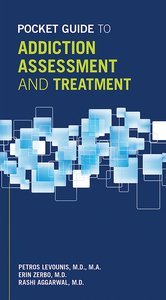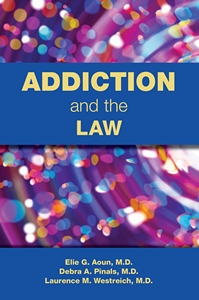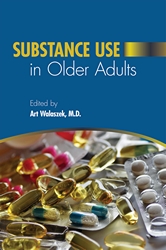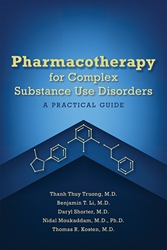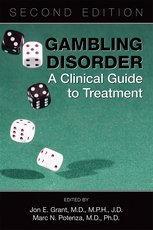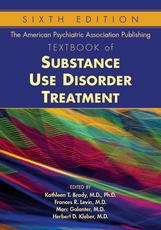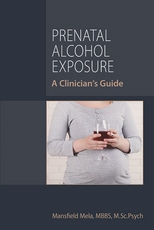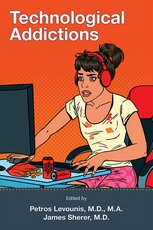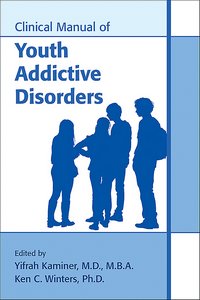Pocket Guide to Addiction Assessment and Treatment
View Pricing
Description
Ambivalence, poor adherence to treatment, serious psychiatric and medical comorbidities—the difficulties posed by patients of substance use disorders are among the most challenging for practitioners to face. Given that only 10% of patients with these disorders actually receive specialized addiction treatment, it's clear that physicians in all medical and surgical specialties need to become comfortable assessing and treating substance use disorders.
The Pocket Guide to Addiction Assessment and Treatment is designed specifically to aid a wide range of clinicians, regardless of their training in addiction, to more confidently assess and treat this patient population.
The book's practical, actionable content is divided into three sections—Fundamentals of Addiction, Substances and Behaviors, and Treatment—that address topics including:
- The neurobiology of addiction
- How to recognize and treat intoxication, withdrawal from, and addiction to substances such as alcohol, anabolic-androgenic steroids, benzodiazepines, cannabis, opioids, stimulants, and tobacco, as well as hallucinogens, inhalants, and caffeine
- Special issues with psychiatric and medical comorbidities, as well as with specific populations
- Behavioral addictions, with a special focus on gambling disorder
- Cognitive-behavioral therapy; 12-step programs; nutrition and exercise; spirituality, mindfulness, and meditation; and other treatment options, with examples of how each can be used with patients facing addictions
With an accessible, easily referenced format, the Pocket Guide to Addiction Assessment and Treatment serves as a go-to resource for general psychiatrists, internists, family practitioners, pediatricians, emergency medicine physicians, psychiatric nurses, residents, medical students, and other practitioners involved in the addiction treatment field. And because all of the diagnostic discussions are DSM-5–based, readers can be confident that they're getting the most relevant and up-to-date guidance on the topic.
Contents
- Contributors
- Preface
- PART I: Fundamentals of Addiction
- Chapter 1. Neurobiology of Addiction: From Reward to Relief: The Complex Neuroadaptations Underlying Addiction
- Chapter 2. Addiction Assessment Across Settings of Care: Approaches for the Twenty-First-Century
- Chapter 3. DSM-5 Diagnosis and Toxicology
- PART II: Substances and Behaviors
- Chapter 4. Alcohol
- Chapter 5. Anabolic-Androgenic Steroids
- Chapter 6. Benzodiazepines
- Chapter 7. Caffeine
- Chapter 8. Cannabis
- Chapter 9. Hallucinogens and Dissociative Drugs
- Chapter 10. Inhalants
- Chapter 11. Opioids
- Chapter 12. Stimulants
- Chapter 13. Tobacco
- Chapter 14. Behavioral Addictions: Focus on Gambling Disorder
- PART III: Treatment
- Chapter 15. Cognitive-Behavioral Therapy
- Chapter 16. Relapse Prevention
- Chapter 17. Motivational Interviewing
- Chapter 18. Twelve-Step Programs and Spirituality
- Chapter 19. Mindfulness and Mentalization
- Chapter 20. Diet and Exercise
- Index
Contributors
- Jonathan Avery, M.D.
Nauman Ashraf, M.D.
Timothy Koehler Brennan, M.D., M.P.H.
Tshering Bhutia, M.B.B.S.
Faye Chao, M.D.
Adam Demner
Emily Deringer, M.D.
John Douglas, M.D.
Mirela Feurdean, M.D.
Timothy Fong, M.D.
Sandi Frank
Bernadine Han, M.D., M.S.
Grace Hennessy
Abigail J. Herron, D.O.
Vicki Kalira, M.D.
Cheryl A. Kennedy, M.D.
Michael A. Ketteringham, M.D., M.P.H.
Sonya Lazarevic, M.D., M.S.
Annie Levesque, M.D.
Lindsay Lynch
Shaojie Han, M.D., M.S.
C. Alexander Paleos, M.D.
Douglas Opler, M.D.
Alisa L. Riccardi
J. David Stiffler, M.D.
Maryn Sloane, M.D.
Alex Zaphiris, M.D., M.S.
About the Authors
Petros Levounis, M.D., M.A., is Chair of the Department of Psychiatry at Rutgers New Jersey Medical School, and Chief of Service at University Hospital in Newark, New Jersey.
Erin Zerbo, M.D., is Assistant Professor of Psychiatry at Rutgers New Jersey Medical School in Newark, New Jersey.
Rashi Aggarwal, M.D., is Associate Professor of Psychiatry at Rutgers New Jersey Medical School in Newark, New Jersey.
Related Products
Carousel Control - items will scroll by tabbing through them, otherwise arrows can be used to scroll one item at a time
